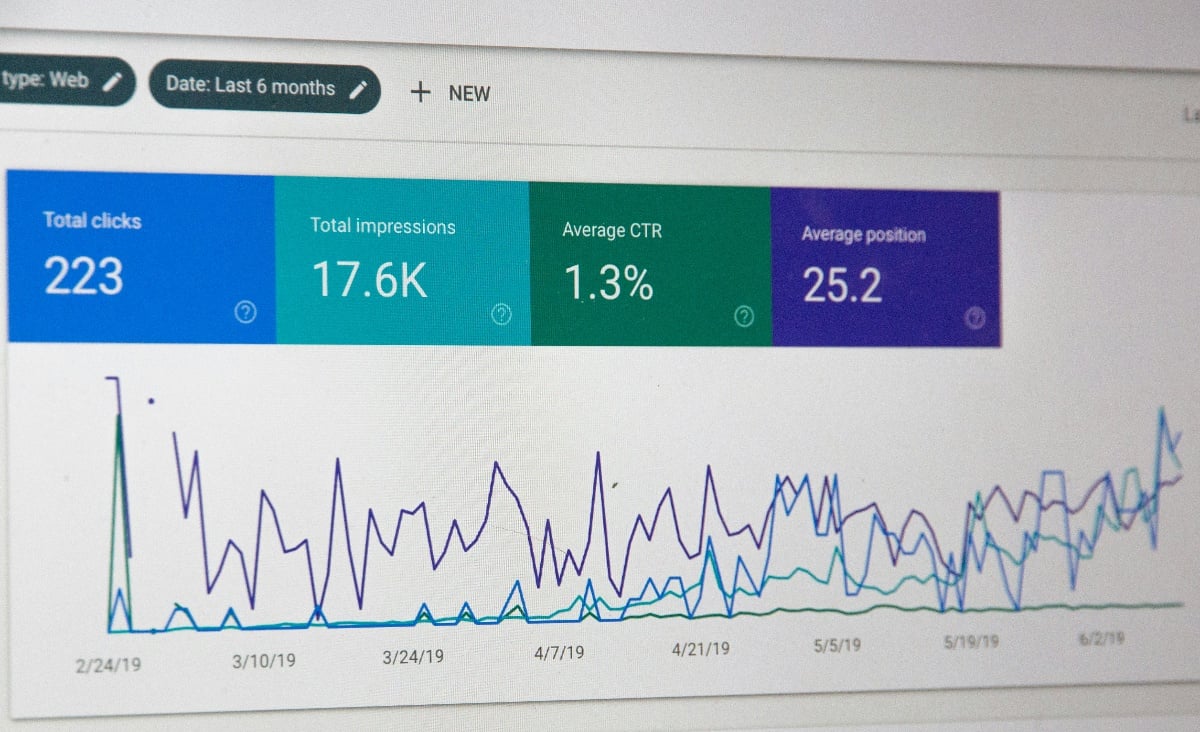
Creating a Marketing Plan for Your Micro-Credential Program
A micro-credential is a type of short, competency-based recognition that has grown in popularity enormously over the last few years in particular.
Even though the United States' unemployment rate has certainly fallen from its heights during the pandemic, and the country added 353,000 jobs in January 2024 alone, the situation is still incredibly competitive out there for many industries.
According to a study conducted by Glassdoor, about 250 people apply to every new corporate job posting.
Of those, only between four and six people will even reach the interview stage.
Obviously, only one of them will get the position.
In a market that crowded, applicants need to do anything they can to stand out - which is part of what micro-credentials are designed to do.
They help show that candidates prioritize things like ongoing education and professional development.
That they didn't stop advancing when they received that traditional diploma - rather, their journey had just begun.
It's a chance to create a competitive advantage for themselves in the job market during a time when any such opportunity to differentiate themselves is far too important to pass up.
At the same time, it's important to note that many educational institutions themselves are still experimenting with how to best get the word out about their micro-credential offerings.
Roughly 62% said that they still saw their own adoption as "emerging" as of 2023, with only 13% saying that adoption rates had matured.
What this means is that learners will soon have more options than ever when it comes to creating the personalized, career-driven educational journey they seek.
If you want to get their attention and highlight why yours is the right solution for the right time, you'll need an organic marketing plan for your micro-credential program that is built with this and similar goals in mind.
Why Integrated Marketing Matters for Micro-Credentials
Integrated marketing is important for micro-credentials, in part, thanks to the dual nature they share with a more formal curriculum.
Micro-credentials can essentially serve two different purposes depending on where you are in your education and your career.
First, they can be a great addition to your resume, clearly showing off how you can provide in-demand skills and experience to an employer.
If there's a particular trend in hiring that you want to quickly and legitimately capitalize on, micro-credentials can be a perfect way to do it.
But in a lot of situations, micro-credentials can also represent stepping stones on the path to a full degree or some type of other certificate.
Someone can continue along the micro-credentials path and earn that degree quickly, or they can do so at a more personalized rate that is better aligned with their own career development.
The choice is theirs to make.
But because of that, a cohesive marketing strategy is absolutely essential.
To that end, you need to think about marketing micro-credentials the same way you would any other product or service.
Your marketing efforts will be all about helping people understand:
- What micro-credentials are.
- Why they matter.
- What problem they can solve or value they can provide that a person wouldn't be able to get through other means.
Obviously, the mechanics of such a campaign will be far more intricate than that.
However, all your efforts will still come back to these three simple concepts. You cannot, under any circumstances, assume that your target audience is coming into the situation with this knowledge.
Educating Learners on Micro-Credentials
On the subject of that educational portion of your marketing plan, you would want to start by executing various digital media campaigns to raise awareness.
There are people out there who may be returning to the job market after a long time away who may not even be aware that micro-credentials are an option.
They don't know to research them on their own because they might not be aware they exist at all.
Or, they're so new to things that they're confused and overwhelmed by the sheer volume of options available to them.
For these people, you'll want to use various digital media campaigns to lay an educational foundation that you can build from moving forward.
Focus on general information materials that illustrate what micro-credentials are and what value they provide.
Likewise, create specific marketing collateral that is tailored to individual programs.
Don't let someone assume that already having a specific program in mind means that micro-credentials are suddenly off the table.
During this "awareness stage" of someone's journey, you'll also want to provide as much "proof" as possible as to the value that micro-credentials bring with them.
According to another study, about 76% of hiring professionals say that micro-credentials show that an employee is willing to develop their skills.
Another 63% say that they demonstrate someone's initiative.
Prospects aren't just going to take your word for it that micro-credentials are an investment worth making.
They'll want to see marketing collateral filled with statistics like those.
You should also lean on resources like employer testimonials and quotes to illustrate just what type of power you're talking about.
Tailoring the Value Proposition to Different Audiences
One critical thing to understand about any type of marketing is that you always need to tailor your message to the exact group of people you're talking to.
You would never try to sell something to teenagers the same way you would a group of retirees.
They're in totally different stages in their lives.
Everything - from language choices to graphic design to distribution channels - would need to be adjusted to the specific audience to resonate as much as possible.
The same concept is true here, too.
Case in point: you should absolutely create marketing collateral that highlights the benefits of micro-credentials as they pertain to a formal curriculum for degree-seeking learners.
These people already have a precise path laid out for themselves, and they might need help understanding how micro-credentials will fit in.
People on a different path are those who are more focused on professional development.
Here, you would want to highlight verified competencies and the long-term impact that micro-credentials can have.
In both scenarios, you're still talking about the same core thing.
You just need to talk about it in two different ways to appeal to two vastly different audiences at different stages in their lives.
Combining Marketing for Micro-Credentials and Curriculum
Another technique you should make use of involves creating unified marketing plans.
That is to say, lean into the benefits that apply to both micro-credentials and a more traditional curriculum whenever possible.
Think about micro-credentials and a more traditional curriculum as two circles on a Venn diagram.
That part in the center where the two overlap in terms of benefits and even structure can be a marketing campaign all unto itself.
It's a great way to identify cross-promotion tactics, for example.
Help people understand how they might want to start with micro-credentials and then pivot to a more traditional curriculum when they're ready.
Let people know that it isn't an "either/or" choice.
You'd be surprised by how many people might not be aware of the true relationship between the two concepts.
Likewise, develop training plans for stacking micro-credentials as someone's career or educational goals evolve.
Some may come into the topic assuming that micro-credentials are essentially something that you "do once and forget about."
Really, they can represent further steps in the continuing journey that is their higher education/career development progress.
Utilizing Digital Marketing Channels
As your marketing plan begins to take shape, you'll want to utilize any and all digital marketing channels that are available to you.
Various social media channels can be a perfect opportunity to extend your reach, for example, so long as you play to the strengths that make each social network unique.
LinkedIn is great for more professional content that is geared towards an audience that may be already on their way towards building the type of career they've always wanted.
Facebook is perfect for long-form content that will be shared widely among various demographics, while sites like Instagram are more visual in nature.
Always create collateral that is optimized for whatever social network it will end up on.
Building out the digital marketing portion of your campaign will also require you to focus on SEO, or search engine optimization.
Remember that over 90% of all online experiences still begin with a search engine.
This means that most people are probably going to find out about your micro-credentials via a search engine like Google, so all content you publish needs to be keyword-rich and leverage other techniques to help it rank as highly on the search engine results pages as possible.
You can also leverage email marketing and newsletters to your advantage.
They can be a great educational resource that is also highly engaging when content is of high value.
One recent study even revealed that about 59% of people say that marketing emails, when executed properly, "strongly influence" their purchasing decisions.
Using Data to Support the Value of Micro-Credentials
All the while, make sure that your marketing collateral is focused not just on what micro-credentials are in a literal sense, but the value they bring to people that they may not be able to get through other means.
In other words, it's not about what micro-credentials can do.
It's about what they can do for your audience.
Never overlook an opportunity to present workforce and market demand data to illustrate the objective value that micro-credentials can bring to someone's education and ongoing career development.
Talk about career advancement opportunities and put things in that context.
You can even utilize job posting and demand data (like the aforementioned statistics) for added credibility.
It paints a more vivid picture of the legitimate value of micro-credentials that more opinion-driven collateral tends to miss.
Traditional Marketing and Outreach
But while newer techniques and digital marketing are certainly effective, that doesn't mean you can't still lean into some of the tried-but-true "old school" marketing and outreach tactics that have proven their worth time and again.
Participating in industry events like job or education fairs is a great way to talk to people one-on-one in a more direct setting.
They have higher attendance and participation than virtual events, and allow you to track engagement in a far more straightforward way than you can do online alone.
Events like these are also a perfect chance to form educational partnerships with institutions in your area.
Not only does this expose your messaging to a wider audience, but it comes with a type of credibility that would be difficult (not to mention expensive) to build on your own.
There are also press releases and other print media outlets like magazine articles that can establish leadership and authority as well.
It's been estimated that print advertising in general offers a massive 112% return on investment - making it one of the more cost-effective ways to reach your target audience, to be sure.
Measuring Marketing Success
The importance of monitoring your campaign performance as it pertains to your micro-credential program literally cannot be overstated.
You cannot improve that which you're not measuring and if you want to make sure you're spending your time and money in the right places, you need to be tracking performance on an ongoing basis.
For the digital side of things, you can use tools for monitoring campaign performance like Google AdWords or HubSpot.
This can help you see which aspects of your plan are working and, more importantly, which ones aren't.
Pay attention to the KPIs (key performance indicators) that align with the specific goals you've set for yourself.
If you're trying to increase the number of people who are signing up for micro-credentials, obviously look at those conversion rates.
You'll also want to monitor your cost per lead, cost per acquisition, and aspects like the bounce rate on your various websites.
Clickthrough rates for landing pages and open rates for things like email newsletters are also a must.
Creating a marketing plan for your micro-credential program is all about continuous improvement - not unlike the micro-credentials themselves.
Put a plan in place, monitor it, take what you learn, and act on that insight.
As you see improvements, continue to monitor and look for opportunities to further increase the effectiveness of your collateral.
The Ongoing Importance of Integrated Marketing
In large part because the job field is so competitive, it's estimated that it takes between 100 and 200 applications to get a job in the modern climate.
Each application only has a roughly 8.3% chance of turning into an interview.
Micro-credentials have become a big part of how applicants can help swing those numbers in their favor.
On average, businesses are 72% more likely to hire a candidate who has earned at least one micro-credential.
Roughly 88% of all employers either "agree" or "strongly agree" that a micro-credential strengthens a candidate's application.
Micro-credentials provide a legitimate service and value to those who earn them.
You know that. Experts know that.
Now, you just need learners to know it, too - which is a large chunk of the goal that your integrated marketing campaign will help you accomplish.
The process begins with educating learners on micro-credentials, but it certainly doesn't end there.
Through tailoring your value proposition to different audiences and combining marketing for micro-credentials and curriculum, you can help provide some much-needed context that people might be missing.
By utilizing digital marketing channels and using data to support the value of your offerings, you can get the right message in front of the right person at the right time in the most effective way possible.
Without this approach, at best yours is a solution in search of a problem - the type of program that nobody will take advantage of because nobody will ever find it.
At worst, people will unfairly lump your micro-credential program in with all the "too good to be true" programs out there that promise to look good on a resume, but that really do nothing of the sort.
Integrated marketing helps gain the attention of the right type of learner.
Educating those learners elevates not only the value of your program, but of your institution in general.
These are just a few of the many, many reasons why building a marketing plan for micro-credential program offerings like yours is an opportunity that is far too important to pass up.
If you'd like to find out more information about creating a marketing plan for your micro-credential program, or if you have any additional questions you're eager to discuss with someone in a bit more detail, please don't hesitate to contact us today.


.jpg)

.png)

